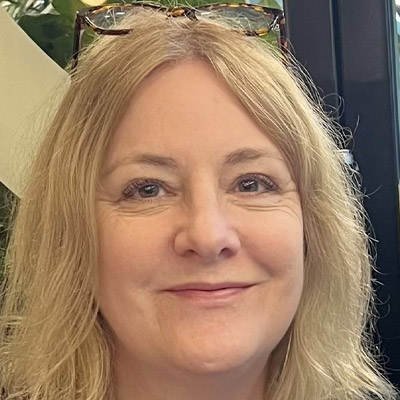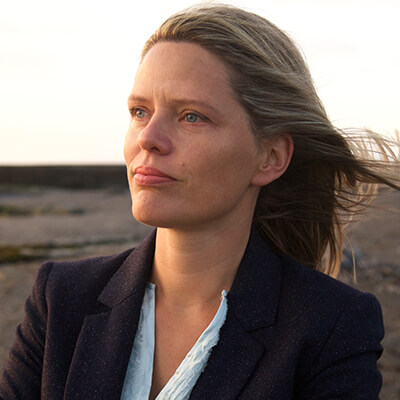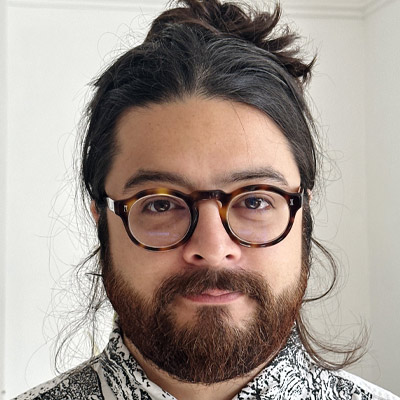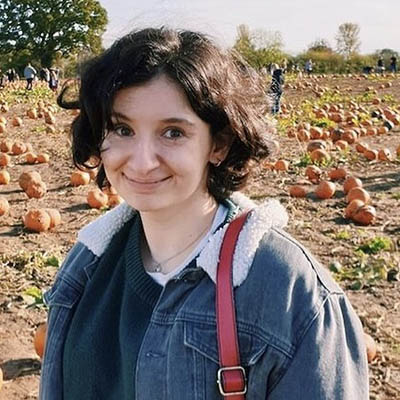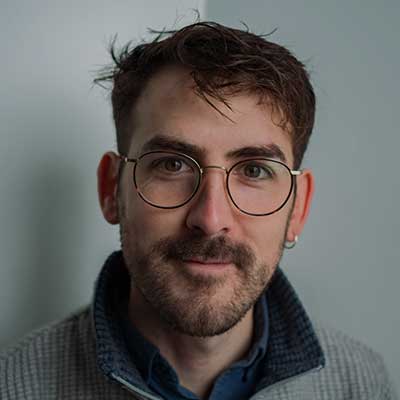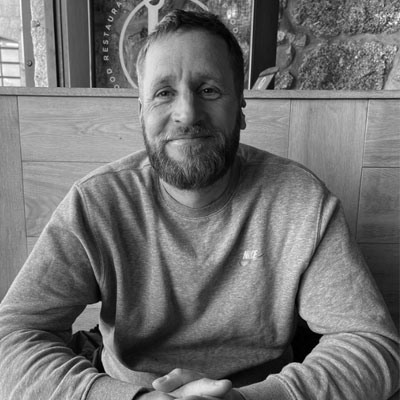Media Communications and Sociology
BA/BSc (Hons)
Undergraduate degree - combined honours
- UCAS codes: Institution B20, Course PL93 or S150 (with professional placement year)
- Media Communications - Programme Document
- Sociology - Programme Document
Revolutionise how media creators communicate to audiences with our Media Communications degree.
- Learn the skills to succeed across the ever-growing communications industries.
- Reimagine how you use media to communicate to audiences ethically and progressively.
- Work alongside The Studio, the University’s new city-centre innovation hub for creative media technology.
#1 in South West
for Continuation in Communication and Media Studies (Complete University Guide 2025)
#1 in South West
for Satisfaction with Feedback in Media and Film Studies (Guardian University Guide 2025)
#3 in South West
for Teaching Quality in Communication and Media Studies (Sunday Times Good University Guide 2025)
What does it involve?
Gain the skills you need to thrive in the ever-growing communications industries while reimagining media for a more inclusive and ethical future.
You'll develop creative skills in research, marketing, social media management, creative campaign strategy, and journalism. You'll investigate key topics of media studies, work on cross-platform campaigns, delve into political media-making, and engage in investigative journalism, all while creating professional social media content and PR packs.
Taught by a team of researchers and creative media strategists and creators, you’ll learn how to rethink media communications for social change. You’ll explore the role of online influencers, diverse screen representation, and the ethics of platforms like TikTok. Learn about emerging marketing practices for immersive experiences, feminist activism, AI communications, and more.
Throughout this media communications degree, you’ll develop your ability to rethink media with a deep-rooted knowledge of the communications sectors, working on everything from short-form Instagram content to large-scale media campaigns with our industry partners.
In your final year, you’ll join The Studio, the University’s city-centre innovation hub for creative media technology. By collaborating with local media and communications experts on cross-platform campaigns, feature articles, and activist media projects, you’ll gain invaluable on-the-ground industry experience.
"Media Communications at Bath Spa is so much more than a course: it’s a community of students and staff coming together to develop new ways of communicating media to audiences. Students are given the creative freedom to build a powerful portfolio of communications, digital marketing, journalism and social media content. I found my passion in journalism, but also explored website building, crafting an Alternate Reality Game, photo and video editing, blog writing and social media - the skills from which I'll carry forward in both my personal and professional life."
Amber Wisteria, Media Communications Graduate, 2022
What you'll learn
You’ll develop practical skills in marketing, creative strategy, journalism and social media management through the lens of ethically engaged media activism, balancing creative and design work with research into online influencers and media ethics.
Throughout the degree, you’ll examine the role of immersive media, feminist activism, AI communications, exhibitions and public audiences and much more in shaping the future of media communications.
You’ll bring together your ability to rethink the media with your deep-rooted knowledge of the communications sectors, working on everything from short-form Instagram content to large-scale media campaigns with our industry partners.
Year one: audiences, activism and access
Open your eyes to being a media activist. You’ll be introduced to analytical tools to critique contemporary media, such as gender and inequality. You’ll learn new graphic design and project development skills, as well as how to research media audiences.
Year two: industries, inclusivity and influencers
Understand the communications industry. You’ll learn marketing, influencer and branding practices, identifying opportunities to revolutionise how media creators communicate to audiences. You’ll learn web design skills, explore grassroots community media, practice cross-platform communication strategies, and increase your awareness of media ethics.
Year 3: emerging voices, technologies and opportunities
Become a communications professional and realise your vision for a more inclusive media landscape. You’ll work beyond the borders of the university, joining The Studio, our innovation hub for creative media technology, while collaborating with arts and cultural organisations. You’ll learn how immersive media, feminist activism, AI communications and public exhibitions can all shape the future of media.
You’ll produce the kind of media content that defines our ‘communications for change’ ethos, working on creative media campaigns, marketing strategies, investigative journalism features, political media making, social media content and PR packs.
You’ll be taught by a team of world-leading researchers and creative media practitioners.
Lectures set out key practices and emerging trends in media communications, such as gender on social media, racial inequality in journalism, or how global media companies define their audiences. You’ll also learn via workshops devoted to skills including web design and media branding, and in project labs you’ll work with staff and students to co-design larger campaigns.
To find out more about how we teach and how you'll learn, please read our Learning and Teaching Delivery Statement.
Opportunities
All final-year students will join The Studio, Bath Spa University’s city-centre hub for creative media technology.
Our final-year modules are delivered in collaboration with industry partners, providing students with insight into - and hands-on experience with - some of the most innovative and culturally significant arts, media and communications organisations in the region.
Recently our students have produced articles, campaigns, strategy reports and social media content for the likes of:
Our Media Communications course is designed for those looking to succeed within and across the ever-growing communications industry, developing much sought-after skills in digital marketing, creative strategy, PR, journalism and social media management.
Our graduates are equipped to succeed as advertising, branding, and marketing leaders, social media creators, campaign designers, web and graphic designers, creative strategists, events coordinators, and media researchers.
They’ve gone on to work at companies like Marvel Studios, ITV, Newbury Racecourse, Save the Children UK, Q Magazine, Komedia, and more.
As part of your degree, you could study abroad on a placement at one of Bath Spa’s partner universities.
If you’re a full-time undergraduate student starting your first year at Bath Spa University, you can apply for the Certificate in Global Citizenship, which you’ll study alongside your degree.
You’ll gain global awareness and add an international dimension to your student experience, and funding is available. On successful completion of the programme, you’ll be awarded a Certificate in Global Citizenship. This is in addition to your degree; it doesn’t change your degree title or results.
Professional placement year
The Professional Placement Year (PPY) provides you with the opportunity to identify, apply for, and secure professional experience, normally comprising one to three placements over a minimum of nine months. Successful completion of this module will demonstrate your ability to secure and sustain graduate-level employment.
By completing the module, you'll be entitled to the addition of 'with Professional Placement Year' to your degree title.
Before your PPY, you'll work to identify roles of interest and secure a placement. The Placements Team will support through timetabled sessions and 1:1 appointments.
As well as completing a minimum of 900 placement hours, you will complete two assessments demonstrating your skill development, growth in professional behaviours and how the PPY has impacted your future career aspirations.
Facilities and resources
As a BA Media Communications student you’ll benefit from access to comprehensive digital workshops and specialist art and design facilities, including:
- Our student service point at Locksbrook where you can purchase subsidised art and design materials, hire out equipment for free and collect Library resources
- Access to our well-stocked Library at Newton Park
- Access to specialist technical workshops across all of art and design
- Access to studio space where you can work on projects and refine your practice
- The Studio in Bath
- Virtual Learning Environment
Media Communications students can make full use of Bath Spa University’s purpose-built media production and post-production facilities at Newton Park.
Media Communications students can hire out equipment using SISO, Bath Spa University’s free equipment loan service. We provide a huge variety of equipment and resources from multi-camera TV studios through to digital cameras and field recorders.
You'll also have access to a wide range of University resources:
- Library collections directly relevant to the Media Communications course include more than 450 journal subscriptions, 18,000 books and 3,000 e-books. The Library’s extensive digital collections include Film and Television Literature Index, Rock's Backpages, and Box of Broadcasts, an archive of over two million off-air television broadcasts. Library resources for the course are underpinned by our Subject Librarian, who provides subject-specific support and a defined point of contact for research enquiries.
- The Careers team have very close links with the media and creative industries in Bath and Bristol, and organise bespoke opportunities for you to engage with media employers, including networking sessions and bus tours visiting organisations.
- (ASk) Academic Skills provides continuous support for your academic work, providing feedback on written drafts and running sessions on academic writing.
Fees
| Student | Annual tuition fee |
|---|---|
| UK full time | £9,535 |
| UK part time | £4,768 |
| International full time | £17,430 |
Professional Placement Year
During the placement year, the fee is reduced to 20% of the full time fee. This applies to UK and EU/International students.
- UK: £1,905
- International: £3,486
Additional course costs
You may need to pay additional course costs over and above your tuition fees, for example, for specialist equipment or trips and visits. Please check the course Programme Document (linked under the main image on this page) for details of any additional costs. You can also read our Additional Course Costs Policy for further information.
Funding opportunities
Please visit our Funding pages for an overview of the funding options that may be available, including scholarships and bursaries.
Interested in applying?
We’re looking for enthusiastic students looking to succeed in the communications industry, with a particular eye on advertising, campaign design and research. We value creative thinking, but also place an emphasis on being socially conscious about issues like race, inequality and representation in the media. The ability to challenge the media and identify new ways of communicating to audiences are therefore important traits we look for in candidates.
We accept a wide range of qualifications for entry to our undergraduate programmes. The main ones are listed below:
- A Level – grades BBB-BCC preferred.
- BTEC – Extended Diploma grades from Distinction Distinction Merit (DDM) to Distinction Merit Merit (DMM) accepted in any subject.
- T Levels – grade Merit preferred.
- International Baccalaureate – a minimum of 32 points are required.
- Access to HE courses – typical offers for applicants with Access to HE will be the Access to HE Diploma or Access to HE Certificate (60 credits, 45 of which must be Level 3, at Merit or higher).
If you don’t meet the entry requirements above, we may be able to accept your prior learning or experience from outside of formal education. See our Accreditation of Prior Learning (APL) page to learn more.
English Language Requirements for International and EU Applicants
IELTS 6.0 - for visa nationals, with a minimum score of IELTS 5.5 in each element.
Course enquiries
For further information about the programme or entry requirements, please email us at admissions@bathspa.ac.uk.
Ready to apply? Click the 'apply now' button in the centre of this page.
Need more guidance? Head to our how to apply pages.
Subject Leader: Dr Rebecca Feasey
Email: r.feasey@bathspa.ac.uk
Course leader: Dr Conrad Moriarty-Cole
Email: c.moriarty-cole@bathspa.ac.uk
Three year course
With placement year
Fascinated by social issues? Want to help make the world a better place? Our Sociology degree could be for you.
- In our fast-changing world, Sociology is exciting, relevant and provides essential skills.
- Learn to tackle problems creatively and make better decisions, applying your knowledge to specific issues.
- Choose to specialise in specific areas of the subject, such as education and crime.
Do you want to know more about the world we live in? Do you care, and want to make a difference? If so, you’re well-suited to a Sociology degree at Bath Spa.
Sociology is the study of societies, cultures, and groups. We live in complex societies, with laws and informal rules that govern how we interact. Sociology helps you understand more about yourself, others and how society is organised.
#1 in South West
for Satisfaction with Feedback in Sociology (Guardian University Guide 2025)
Joint #8 in UK
for Value Added in Sociology (Guardian University Guide 2025)
What you'll learn
You’re taught about society, social groups and social organisation. You’ll learn about social problems and social policies.
Learn how to make sense of social change and conflict, and gain a good understanding of social differences, inequalities and social divisions.
Apply your knowledge and skills to specific problems and issues to help you become a good decision-maker.
Year one
You’ll be introduced to sociology, and the techniques and philosophies of the social sciences. You'll focus on identities – beginning with thinking about your own identity, and building your knowledge and understanding so that you're more familiar with social divisions, structures, and the influence of culture. You’ll also learn how to visualise the most important components of society.
Year two
The second year builds on the first and teaches you about the history of and key ideas within sociology. You can also specialise in more specific areas of the subject, such as education and crime. You’ll undertake practical training in research skills. This will enable you to complete your final year project, and prepare you for the kind of employment that you’ll typically undertake as a sociology graduate.
Year three
You’ll concentrate on an aspect of sociology that most interests you in your final dissertation, undertaken with the support of a member of staff as a supervisor. You can also focus on more detailed subjects, such as globalisation, environment, ethnicity and gender.
Assessments vary and may include essays, reports, book and article reviews, seen and unseen examinations, portfolios, projects, learning journals, individual and group work, videos and screencasts, and research projects.
You’ll be taught in lectures, seminars, individual and group tutorials, and through our extensive online learning support environment.
To find out more about how we teach and how you'll learn, please read our Learning and Teaching Delivery Statement.
“Sociology helps me piece things together and see the world how it really is. The campus at Bath Spa is beautiful! It’s a really peaceful place to think and the lecturers are passionate about what they teach.”
Kirsty Taylor, Sociology student
Opportunities
As part of your degree, you could study abroad on a placement at one of Bath Spa’s partner universities.
We run optional visits to places such as criminal justice institutions and religious places of worship. You can take a dedicated fieldwork module.
We provide support in obtaining placements and making links with professionals, and we invite our Sociology graduates back to meet with you. Optional modules have links with professionals and visiting speakers built into the teaching and learning. This means you’ll learn about the real-world application of what you're learning and be able to make more informed decisions about your future career.
A Sociology degree is useful for any career that involves working with people, either in the private, public or third sectors, typically:
- Management or administration in the public or private sector
- Human resource management
- Marketing and public relations
- Media or journalism
- Social work
- Youth and community work
- Health education or nursing
- Law
- Policing
- Offender management and interventions
- Work in the voluntary sector and fundraising
- Social research and analytics.
Employers such as the National Osteoporosis Society, the Ministry of Defence, Wiltshire Council and Truro College have recruited graduates from this course. Students have also gone into roles including Assistant Education Officer, Student Services Assistant and Relocation Advisor.
If you’re a full-time undergraduate student starting your first year at Bath Spa University, you can apply for the Certificate in Global Citizenship, which you’ll study alongside your degree.
You’ll gain global awareness and add an international dimension to your student experience, and funding is available. On successful completion of the programme, you’ll be awarded a Certificate in Global Citizenship. This is in addition to your degree; it doesn’t change your degree title or results.
Professional placement year
The Professional Placement Year (PPY) provides you with the opportunity to identify, apply for, and secure professional experience, normally comprising one to three placements over a minimum of nine months. Successful completion of this module will demonstrate your ability to secure and sustain graduate-level employment.
By completing the module, you'll be entitled to the addition of 'with Professional Placement Year' to your degree title.
Before your PPY, you'll work to identify roles of interest and secure a placement. The Placements Team will support through timetabled sessions and 1:1 appointments.
As well as completing a minimum of 900 placement hours, you will complete two assessments demonstrating your skill development, growth in professional behaviours and how the PPY has impacted your future career aspirations.
Facilities and resources
Sociology is taught at Newton Park campus.
You'll have access to excellent facilities and resources such as:
All modules can be found on our Virtual Learning Environment, Ultra, providing unlimited online access to learning materials such as handbooks, lecture slides, assessment information, discussion boards and other resources.
Our library gives you access to books, academic journals and DVDs and an extensive range of electronic services. It also provides a place for individual study and collaborative work.
Fees
| Student | Annual tuition fee |
|---|---|
| UK full time | £9,535 |
| UK part time | £4,768 |
| International full time | £17,430 |
Professional Placement Year
During the placement year, the fee is reduced to 20% of the full time fee. This applies to UK and EU/International students.
- UK: £1,905
- International: £3,486
Additional course costs
You may need to pay additional course costs over and above your tuition fees, for example, for specialist equipment or trips and visits. Please check the course Programme Document (linked under the main image on this page) for details of any additional costs. You can also read our Additional Course Costs Policy for further information.
Funding opportunities
Please visit our Funding pages for an overview of the funding options that may be available, including scholarships and bursaries.
Interested in applying?
We're looking for applicants who are concerned about social issues and social problems – maybe you’ve been part of a project group and taken a lead or tried to make a difference. You'll have a sense of social justice and fairness, and you'll be able to see things from different points of view.
We accept a wide range of qualifications for entry to our undergraduate programmes. The main ones are listed below:
- A Level - grades BBB-BCC preferred.
- BTEC – Extended Diploma grades from Distinction Distinction Merit (DDM) to Distinction Merit Merit (DMM) accepted in any subject.
- T Levels – grade Merit preferred.
- International Baccalaureate - a minimum of 32 points are required.
- Access to HE courses – typical offers for applicants with Access to HE will be the Access to HE Diploma or Access to HE Certificate (60 credits, 45 of which must be Level 3, at Merit or higher).
If you don’t meet the entry requirements above, we may be able to accept your prior learning or experience from outside of formal education. See our Accreditation of Prior Learning (APL) page to learn more.
English Language Requirements for International and EU Applicants
IELTS 6.0 - for visa nationals, with a minimum score of IELTS 5.5 in each element.
Course enquiries
For further information about the programme or entry requirements, please email us at admissions@bathspa.ac.uk.
Ready to apply? Click the 'apply now' button in the centre of this page.
Need more guidance? Head to our how to apply pages.
We recommend the following publications:
- The British Sociological Association (BSA)
The national subject association for sociologists in the UK. - Discover SocietyA free monthly online publication and web resource written by British sociologists.
Course leader: Dr Scott Kerpen
Email: s.kerpen@bathspa.ac.uk
Three year course
With placement year
- Award
- BA/BSc (Hons) Media Communications and Sociology
- School/s
- Bath School of Art, Film and Media, School of Sciences
- Campus or location
- Newton Park and Locksbrook Campus
- Course length
- Three years full time, or four years full time with professional placement year. Part time available.
- UCAS codes
- Institution Code: B20
- Course Code: PL93 or S150
- Campus Code: A,BSU
Entry requirements
We accept a wide range of qualifications for entry to our undergraduate programmes. The main ones are listed under 'Typical offers' in the main column below. For combined courses, please check both subjects. If your qualification is not listed, please email admissions@bathspa.ac.uk with your specific details.
